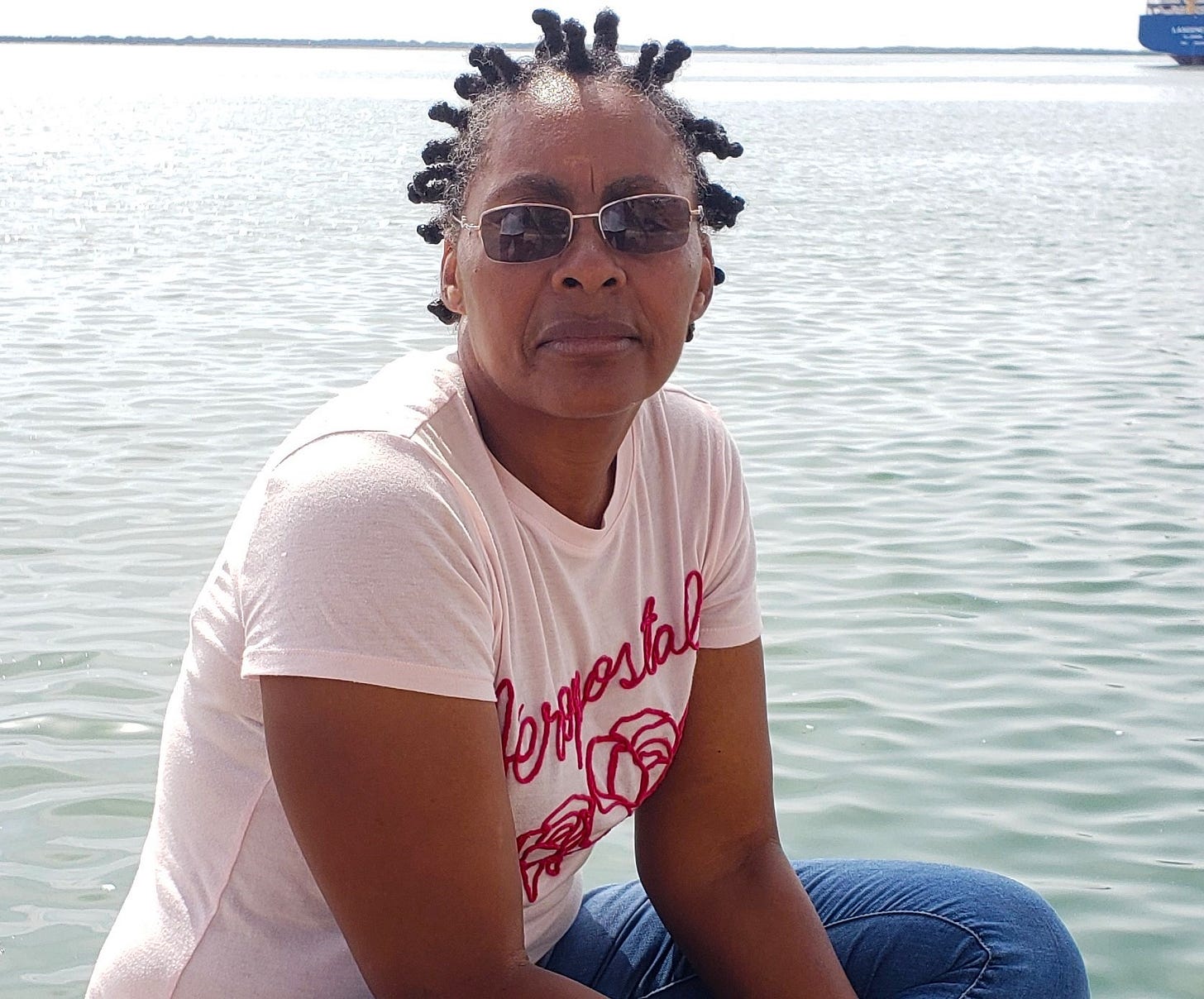The Inevitability of Material Poverty - Hope
What Does It Mean To Care For Others? |First, Your Happiness, and Then Mine|Biography of Annelise Lords|Poverty Lesson
What Does It Mean To Care For Others?
Editorial by Dr. Gabriella Kőrösi
Watching a mother holding her child for the first time. It had been a struggle to keep things afloat. Life can be very hard when we do not know what the next day, the next moment, or the next week will bring to us. One day we might have everything we need and the next we can lose our jobs, lose our homes, and be on the street, relying on friends and family to help us out. The cards of our lives can change at any given moment. Disaster can hit and everything we ever know can be lost very quickly. I recently read a book that a friend Santayana Rose wrote. In her book, Missing Innocents she describes a Tsunami hitting her village and her family had lost everything they ever owned. I worked with a friend who lost her home, her husband, and her dog in a fire, everything collapsed in one day. Some people in poverty get these cards from the beginning. Ultimately stuff we own does not matter much. the only thing that matters is life.
In any of these scenarios, people rely on the kindness and support of others to help them through the tough parts of life. A story from a friend
talking about her mother helping a woman in labor on a bus is what makes us human. It is a way how we can care for each other. Simple really. If someone is in trouble and you can help then help. As a nurse, I have helped many people in my life. It is a wonderful feeling when you can make a small difference in someone’s life even if it is just one moment to ease their pain. Holding out that helping hand makes a great difference. sometimes all you can do is be there. Smile. Stay with the person or buy them something to eat. I used to carry fruits and granola bars with me when I was working in Seattle. There was a street corner coming off the freeway where people were standing asking for money. I felt uncomfortable giving money being not sure what they would use it for and working in addictions I can spot the disease. I asked if they would like fruits or a granola bar. It was always a yes.What if we live in a world where every single person lands a helping hand to one in need?
First, Your Happiness, and Then Mine
by Karsten Ramser
This is ancient Buddhist wisdom, and if we put it into practice, poverty would become impossible. To eliminate, or at least significantly reduce poverty, it is necessary to become transpersonal. In my opinion, there is no other way, and unfortunately, history proves me right.
What does that mean?
How can this be achieved?
Isn't that a utopia?
A utopia?
It is definitely a utopia and it was also a utopia that women would vote, that slavery would be abolished, that there would be same-sex marriage, or that we would have a democracy. Even if I'm not sure about the last point, that's another topic for another article. What makes us human is our ability to make the impossible possible. Today, we are able to do things that were considered miracles just a short time ago.
On the other hand, there is neo-nihilism and the technology of meaning. They tell us that we are powerless, and many of us believe this fairy tale.
Utopias are unrealistic until we realize them.
What does "transpersonal" mean in the context of poverty?
What I mean by transpersonal may well differ from other views on it, but we all share the basic idea of going beyond personal identity. In transpersonal consciousness, we cultivate a much broader vision of life. This view does not place the person at the center of existence, but life itself. Here, life is a web of countless connections; there is no clear separation between cause and effect, rather it is a constant flow. Connectedness.
Transpersonal people are compassionate, open to dialogue, not dogmatic, extremely difficult to manipulate, strong, and capable of analysis based on data and not opinion. They have internalized that important things can only be found within ourselves and not in material goods; they cannot be corrupted as they are fearless. These are just a few highlights of what it means to be transpersonal. However, it should be clear that these qualities are extremely useful when it comes to solving problems. Of course, they also have their downsides, and these are no longer problems and certainly no dramas. Negativity is part of nature, and in transpersonal consciousness, it is reduced to the natural level.
In the context of poverty, we see it as a consequence of our collective consciousness and not as an evil, not as an injustice caused by the powerful, and certainly not as the childish notion of the "evil man".
Poverty is a tragic situation that needs a solution. Unlike the less developed consciousness, in the transpersonal one, we do not add more negativity by making a drama out of it. Transpersonal consciousness takes the negative emotions out of the equation because they make it impossible to find a solution.
How this works in practice is beyond the scope of this article. Poverty takes on a completely different dimension when we no longer focus on our interests but on the common good. If the well-being of our brothers and sisters touches us deeply in our hearts and we then act accordingly, then that is a game changer.
How and when society—the collective consciousness—will adapt to this remains to be seen. What counts, however, is that everyone internalizes and implements transpersonal consciousness for themselves.
Biography of Annelise Lords
I am Annelise Lords and I love art and creating. I love to think, write, read, walk, cook, bake, and watch sunrises and sunsets. I listen with a third ear and use common sense to see and understand life, living, and humanity. Annelise has published multiple books and her art can be found on many online platforms.
Poverty Lesson
by Annelise Lords
On the elite Holy Cross University campus, Vanessa Blake sat under a large Oak tree on one of many concrete benches. Her bag of books rested on a large square-shaped concrete table, half covering the red and black checker's board painted on top. She watched the leaves fall to the ground with the help of a gentle breeze, her thoughts on what she would write for her thesis.
A young woman from her Psychology class sat on the concrete bench facing her, pulling her thoughts away. Vanessa smiled at her.
"I need to talk to you," she demands, throwing back her long blond hair on her shoulders. "My name is Ingrid Sutherland, and you have been in all my classes for the past four years."
Vanessa shrugged her shoulders and said, "Sure."
"I want to know, how can you beat all of us in all of your classes, with your disability?"
Vanessa eased her head back and asked, "I am disabled?"
"Well, you are black," she responds.
"Oh," Venessa said, straightening up, taking her bag off the table, and putting it beside her. "I am poor too," she added.
"That's your second disability. My father said being born black disables you. How is it possible that you are beating all the white children here? How? I know you won a scholarship because you are only one of five blacks here."
Vanessa went into her bag, took a notebook, and pen out, then handed it to her, saying, "Take these life lessons down. You see, my poverty didn't give me the choices your wealth gave you, so I created my own."
"How do you create your own choices?" she asked, taking the notebook and pen and putting them on the table in front of her.
"You said my birth, race, and poverty are my disabilities?"
She nodded.
"My grandmother, mother, and poverty teach many lessons that your wealth doesn't know about. You see, I am from Jamaica."
"That poor, ah?"
"When you have a headache, what do you do?" Vanessa asked, ignoring her remarks.
"I go to the doctor, doesn't everyone?" Ingrid said with a look that said, 'dah.'
"Not us, we are too poor, so we find an herb. We drink Peppermint, Ginger, Rosemary tea, or Coffee we grow and grind ourselves. My grandmother would wrap rosemary leaves in a piece of white cloth around her head, and then relax for a while. I can identify a lot of herbs and which herb is used for what. We have a rich history of herbal cures and remedies."
"What do you expect me to learn from that?" she asked.
"How to heal and cure yourself naturally, without chemicals or side effects. Since these herbs are grown across Jamaica, it's free. You aren't writing?" Venessa said.
Her eyes popped open as she grabbed the notebook and scribbled down something.
Venessa continues, "When you are hungry, what do you do?"
"We have a chef that prepares the finest meals for us. If we want to be dangerous, we order takeout," she brags.
"We are our own chefs, and many of the foods we eat, we grow ourselves. I know when most foods are fit and ready to be picked. I know what nutrients I get from everything I eat. I can kill and pluck a chicken in less than ten minutes. I can kill a goat, remove his hide, dry it, and use it to make Congo drums. The same goes for pigs."
"And I will learn what?"
"How to cook, which is healthier, more economical and you could get a job as a chef or an herbalist."
Thanks for reading,
Dr. Gabriella Kőrösi, Founder
Dancing Elephants Press is a reader-supported publication. To receive new posts and support our work, please consider becoming a free or paid subscriber.
Subscribe
P.S.
If you have been looking for an inexpensive yet thoughtful gift for someone you share knowledge with, consider gifting a subscription to Dancing Elephants Press on Substack, a weekly magazine published every Saturday that will improve the quality of their life.









The worst poverty is to have lost the connection to life. This is the dark side of the wealthy countries in the world, we have lost the natural way of life.
There is a balance between what Karsten and Annelise write. I should say middle ground. Gabriella talks about taking care of others.
I'm still confused about where this is going. There will always be those who have more than others; why does that make them poor? Any time there is a difference between people or circumstances, others feel it must be justified in some way. It's not true.
A lot of people like me grew up poor. I'm still poor when you consider the lives of some to my own.
I think at some point, you might get to those who, like Gabriella pointed out, suffer for some reason.
I really wish this series would get to a point.